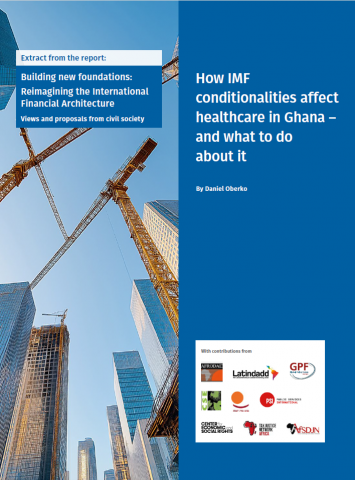
By Daniel Oberko
Austerity measures driven by the International Monetary Fund (IMF) stifle investment in public services, undermine rights to basic services such as healthcare, suppress economic growth and entrench poverty and inequality. Ghana’s 2023 IMF programme is the second time the country has approached the institution in eight years, and the seventeenth time since independence. The long-term impact is less investment in public services such as healthcare. Ghana’s healthcare expenditure is far below the 15 percent of national budgets recommended by the African Union.
Austerity – one of the IMF’s neoliberal policy programmes – does not work for Ghana, particularly when the country is in crisis. However, there are solutions that could help to generate the much-needed revenue to invest in health. In the short term, the government should cut down on waste from political appointments, poorly targeted and election-driven social interventions, as well as confronting corruption. In the long term, the government should raise revenues by removing spurious tax incentives and closing loopholes for tax abuse. And healthcare policies should be driven by all stakeholders, including trade unions.
